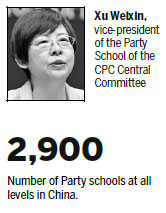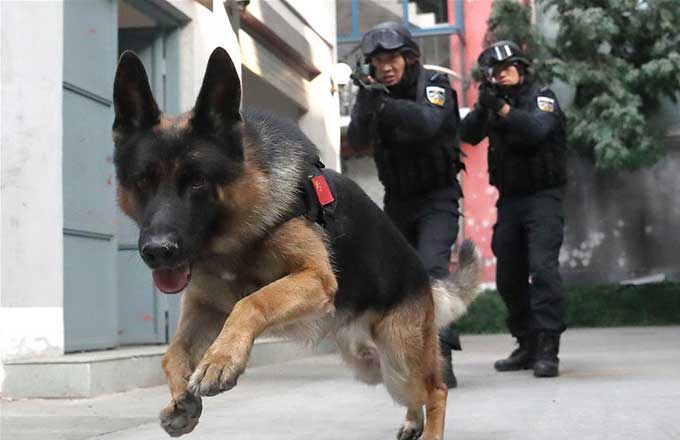Heads of universities finish Party training
The Party's top leader training academy has, for the first time in its 83-year history, trained the heads of all State-run universities, Xu Weixin, vice-president of the Party School of the Central Committee of the Communist Party of China, said on Wednesday.
The 1,446 Party secretaries and principals of all 796 public universities have received training at the school since the 18th National Party Congress in 2012, Xu said.
Meanwhile, the school also organized two-month training programs for Party chiefs at the county level and one-month training programs on the deepening reform of State-owned enterprises, in addition to its existing programs.
Since 2013, it has trained 31,370 people, equivalent to the total of the previous eight years, she said.
"The training at the Central Party School is very intensive and the evaluation is very strict. We have a record of the attendance rate and how many meals they have had in the canteen," Xu said.
"The evaluation report will be sent to their supervisors in their workplaces and the Party organization departments. It will be taken into consideration when it comes to promotion."
She said the school has developed new courses in recent years on topics such as news releases and national security, in addition to Party theory, anti-corruption and economics.
Last year, President Xi Jinping, who was head of the Central Party School from 2007-12, emphasized the significant role that the Party school system plays in building the Party and said that some local officials were not taking the training seriously.
There are about 2,900 Party schools at all levels in China. In addition to the Central Party School, national-level leadership training institutions under the Organization Department of the CPC Central Committee were established in Jiangxi and Shaanxi provinces and in Shanghai municipality in 2005.
It has also established cooperative academic relations with many government organs, research institutes and educational institutions of higher learning in about 30 countries, according to Xu.
"China is the second-largest economy and a country with rising influence on the world stage. That means it is impossible for the Central Party School to close the door to the outside world," she said.
"On one hand, we have to be a better China storyteller and contribute our wisdom to the world; on the other hand, we have to absorb the experiences of other countries that might help us face our own challenges, such as environmental problems."

- Is it a thing? 10 odd jobs where you can make good money
- Message on a bottle: Mineral water company launches drive to find missing children
- Sun Yat-sen champion of national integrity, unity: Xi
- Four killed, two injured after house collapses in C China
- Cross-Straits forum held to commemorate Sun Yat-sen















